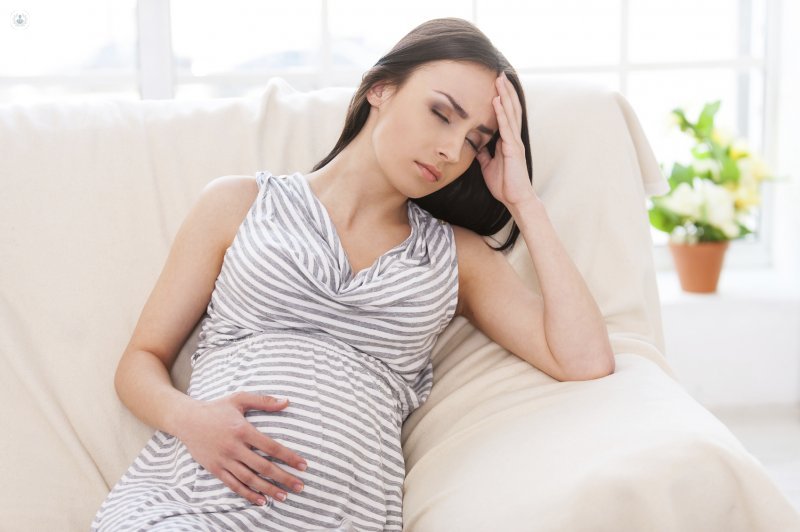Thyroid conditions during pregnancy
Written by:A woman’s thyroid hormone plays an essential role in the health of both mother and baby during pregnancy not least because the foetus is dependent on the mother’s thyroid hormone via the placenta until its own thyroid begins to function at about 12-14 weeks. Any woman with a known thyroid disorder should have a serum TSH test before trying for a baby as thyroid hormones play a vital part in the development of the fetal brain. In addition pregnant women with severe thyroid disease can risk miscarriage, low birth weight, premature birth or stillbirth.

Hyperthyroid problems during pregnancy
Out of every thousand pregnancies six are complicated by hyperthyroidism – 85% of which take the form of the autoimmune disorder Graves’ disease. This can be tricky to pick up because increased thyroid levels in the blood can be naturally caused by two pregnancy-related hormones called hCG and oestrogen. Made by the placenta, hCG mildly stimulates the thyroid to produce more thyroid hormone. Additionally, higher levels of oestrogen will produce raised levels of thyroid-binding /thyroxine-binding globulin which is responsible for transporting thyroid hormone in the blood. The condition can be picked up by visible signs such as a swollen thyroid in the neck or bulging or puffiness of the eye. Other symptoms are:
• Irregular/rapid heartbeat
• Trembling
• Being unable to bear the heat
• Perspiration
• Anxiety
• Problems sleeping
• Unexplained weight loss
• Failure to gain weight during pregnancy
It is important to tell your midwife or obstetrician that you are being treated for Graves’ disease as there is a slight risk that the baby will develop temporary hyperthyroidism in the womb in the second half of the pregnancy up until a few months after delivery. So long as mother and baby are doing well any mild hyperthyroidism will simply be monitored. If it is more severe anti-thyroid medication is administered . Radioiodine treatment is not possible as this crosses the placenta and goes into the baby’s thyroid gland. A thyroidectomy is rarely required if drug therapy is not tolerated.
After delivery, the mother may require higher levels of anti-thyroid medication as Graves’ disease typically worsens before settling down. This medication will not affect breastfeeding but the baby should be periodically assessed to ensure normal thyroid function.
Hypothyroid problems during pregnancy
Out of every thousand pregnancies two are complicated by hypothyroidism - usually as Hashimoto’s disease. Symptoms are likely to include:
• Extreme tiredness
• Sensitivity to cold
• Palpitations
• Cramping of the muscles
• Unexpected weight gain
• Constipation
• Depression
• Problems with concentrating or remembering
Hypothyroidism can be treated with levothyroxine (L-T4) which will have no impact on the baby. Babies are tested for congenital hypothyroidism (CH) at five to eight days old post birth through the heel prick or Guthrie test but there is no increased risk of CH if mum is hypothyroid.
If you are concerned that you‘re experiencing symptoms associated with hyperthyroidism or hypothyroidism please visit your GP and request a blood test. If the test proves positive it is not uncommon for you to be referred to an endocrinologist who is working closely with your obstetrician during pregnancy.


